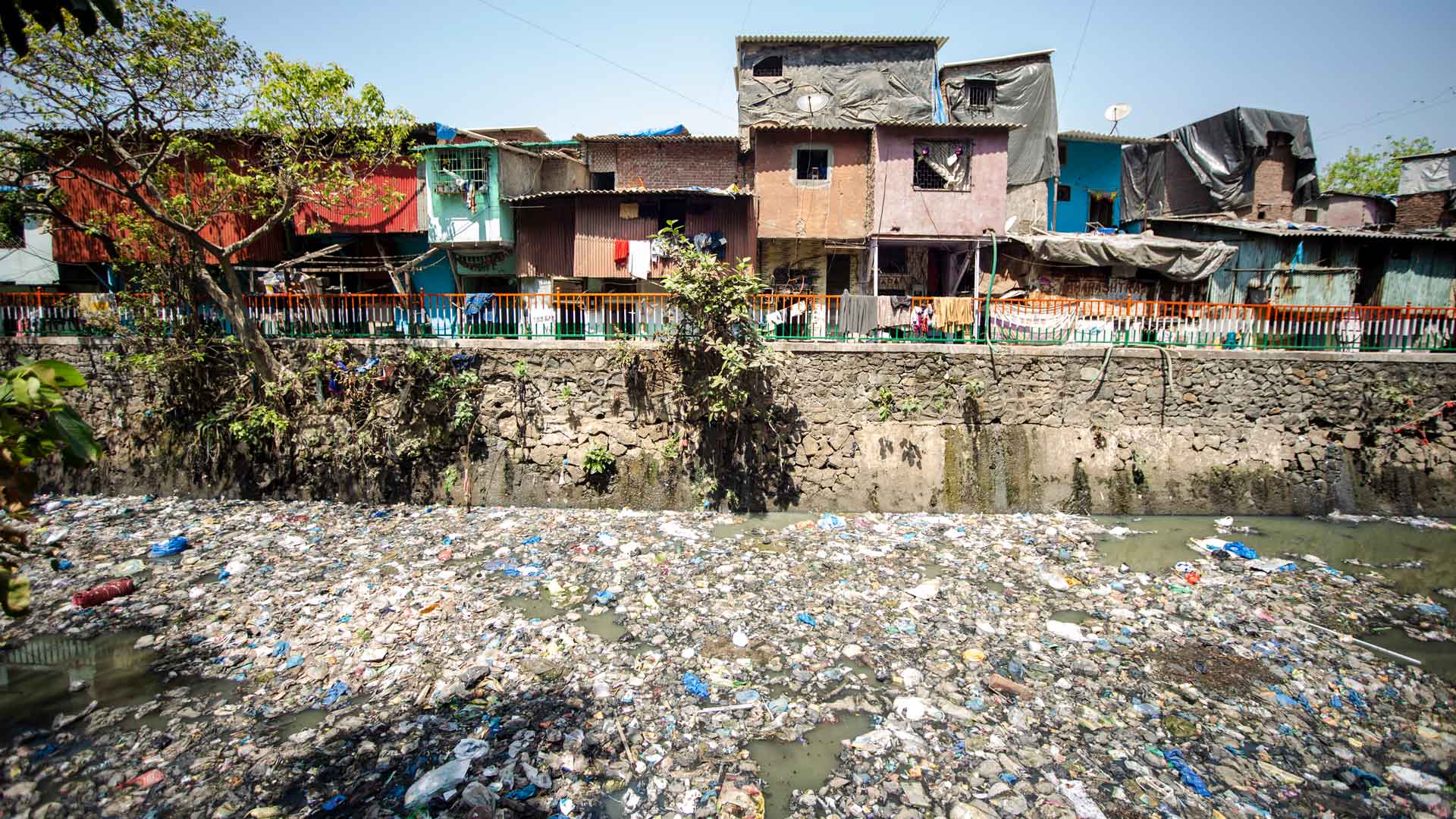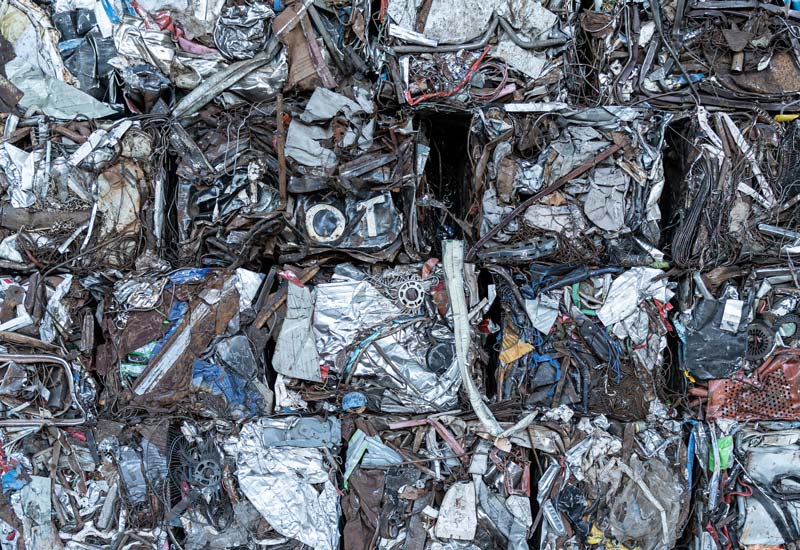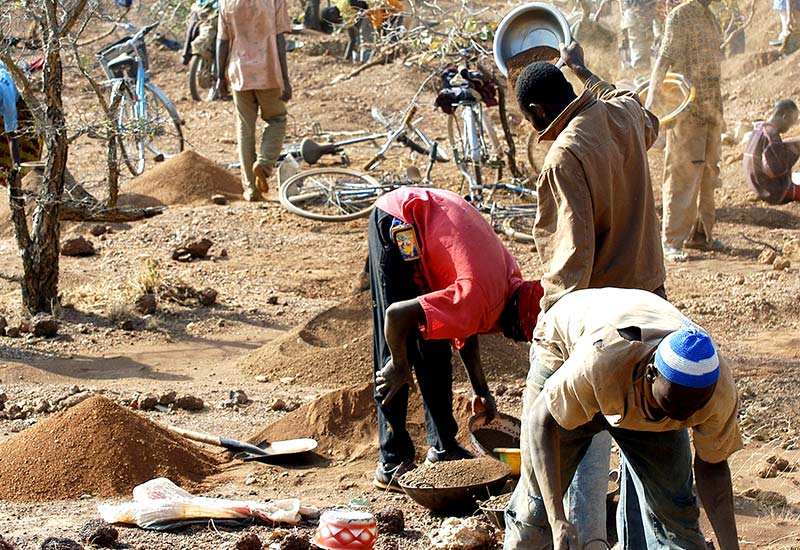Get the right experience for you. Please select your location and investor type.
IMPORTANT NEWS: Transition of investment management responsibilities
First Sentier Group, the global asset management organisation, has announced a strategic transition of Stewart Investors' investment management responsibilities to its affiliate investment team, FSSA Investment Managers, effective Friday, 14 November close of business EST.
Every year we produce around 400 million tonnes of plastic waste worldwide. Of the seven billion tonnes of waste amassed to date, less than 10% of this has been recycled. The remaining 90% is buried in landfills, makes its way overseas to be burnt, or is lost into the environment where it can live for up to 400 years.1
There is no escaping that plastic waste is a significant global environmental problem. Its myriad of uses have made it virtually ubiquitous, and its properties have made it an indispensable part of our everyday world. Over a third of all plastics produced are used in packaging; providing access to longer-lasting food, medicine, cosmetics and other perishable products, as well offering a cheaper, lighter (and therefore less carbon intensive to move around) packaging material than glass or metal. The result is that plastic, with its generally low recovery and recycling rates, has in many cases displaced other materials that are much more likely to be recycled.
The situation is particularly acute in India, where around 15 million tonnes of waste is produced every year. Over the last five years, the amount of plastic waste produced has doubled.2 While plastic has undoubtedly revolutionised modern life, it has also created an enormous burden on the environment, with many of India's cities struggling to manage the sheer volume of waste generated every day. The situation is exacerbated by the lack of awareness amongst consumers about the impact of plastic waste on the environment, as well as the limited infrastructure and resources available to effectively dispose of or recycle the waste.
One of the biggest challenges in India is the widespread use of single-use plastics such as sachets, straws, and bags, which are often discarded after just one use. EVOH (ethylene vinyl alcohol) offers the best resistance to gases such as oxygen and carbon dioxide, and hence the applications are widespread. These small plastic packets, used to package everything from single use sachets of shampoo and detergent, to food and spices are estimated to account for over 70% of all plastic waste generated in India.
EVOH or ethylene vinyl alcohol offers the best resistance to gases such as oxygen, nitrogen and carbon dioxide. It is used to package food, drugs, cosmetics, and other perishable products.
PP or Polypropylene is one of the most commonly used thermos plastics in the world. Commonly used in packaging, injection moulding, fibres and fabrics, as well as tapes and ropes.
Phenol, isopropylated phosphate or PIP is most commonly used in footwear and in textiles, polyurethane foam, electronic equipment such as video display and baby bottle nipples.
Polyamide (PA) is common in textiles like clothing and carpets. It also often features in items that require both strength and flexibility, including fishing line and nets.
PVC or polyvinyl chloride is one of the most widely used polymers in the world, with widespread applications across industrial, technical, construction, transport, packaging, electrical/electronic and healthcare applications.
The challenge of collecting and managing this single use plastic waste is significant, as these items are often discarded indiscriminately and can end up littering streets, fields, and waterways. The Ganges, before it meets the Brahmaputra River and joins the Indian Ocean, flows through some of the most densely inhabited stretches of India and Bangladesh and is a vital water source for over 650 million people. It is also the second most polluted river in the world, carrying over 6,000 tons of plastic waste into the ocean every year.3
As the world's second-most populous country, the scale of India’s plastic waste problem is immense.
As the world's second-most populous country, the scale of India’s plastic waste problem is immense. Addressing the problem requires a multifaceted approach that involves stakeholders across the value chain, from consumers and producers to policymakers and waste management authorities.
We have been investing in India for more than three decades, and some of our longest held businesses are Indian consumer companies, including Marico, a maker of coconut oil based personal care products, as well as Godrej Consumer and Dabur which sell personal care items. We have long held these companies in high regard, especially their approach to improving human health, but an area of concern over the years has been their use of single use plastic packaging.
In 2016 we commissioned a piece of research led by University of Technology Sydney, to assess 25 different consumer companies on ‘Packaging Sustainability’. The report provided a framework and guide for benchmarking packaging sustainability, and we were able to use the findings to begin individual engagements with the companies’ management teams. Early on in our discussions it became apparent that a number of our companies were struggling with the same issues, and so we offered to host an event in Mumbai to bring together leaders from some of India’s largest consumer goods companies, including Nestle India, Hindustan Unilever and Tata Consumer Products.
These discussions led to agreement on the need to set up an independent, industry body that would set industry-wide targets and enable companies to work together to achieve these goals. Post the forum, we held discussions with UK NGO WRAP, a global leader in delivering "Plastic Pacts" to help reduce, reuse, and recycle plastics across the entire value chain. WRAP had prior experience in successfully setting up plastic pacts in the UK, Canada, South Africa, Chile, New Zealand and many other countries, but were yet to tackle India. We were delighted that WRAP were open to working with the Confederation of Indian Industry and WWF-India to launch an Indian Plastic Pact and in September 2021, they made this a reality. We provided WRAP with multi-year funding which has been used to support the operational and technical resourcing required to develop and launch the Pact.
The Pact focuses on four ambitious, time-bound targets, seeking to address the barriers to circularity in the plastic packaging sector. It aims to unite businesses, governments, NGOs, and other stakeholders in creating a national framework, developing roadmaps to reach targets, measuring and reporting progress, and catalysing effective policies to engage citizens in the reuse, recycle and reduction of plastics.
Godrej Consumer Products, Marico, Hindustan Unilever, Tata Consumer Products and Beiersdorf India who attended the forum have since become members of the Pact, and we continue to encourage other companies to join. More information on the India Plastics Pact is available on their website: www.indiaplasticspact.org
Whilst it is challenging to measure success for this type of systemic engagement at the company level there has been a significant increase in post-consumer waste collection and increased use of recycled and recyclable plastics in packaging.
For example, Hindustan Unilever, Tata Consumer Products and Godrej Consumer have already become plastic neutral, whereby they collect more plastic from the environment than they produce. Marico has set a goal of a 100% recyclable, reusable, or compostable packaging portfolio by 2025 and removing all PVC use in packaging by 2025.
- Reduce packaging consumption per unit of production by 20% from the base year of fiscal year 2017-2018.
- 100% of the packaging material is recyclable, reusable, recoverable, or compostable.
- Use at least 10% post-consumer recycled (PCR) content in plastic packaging.
Marico – 96% of product packaging (by weight) is recyclable and they collected c.6,300mt (equivalent in weight) of post-consumer multi-layer product packaging in 2022. They have also committed to the following goals –
- Zero Polyvinyl Chloride (PVC) use in packaging by 2025
- 100% recyclable, reusable or compostable packaging portfolio by 2025
- Reduce packaging intensity by 10% by 2030 (from FY20)
- 100% pellet loss free
Tata Consumer Products – is a plastic neutral company. They have also committed to the following goals by 2030:
- Define a list of unnecessary or problematic plastic packaging and items and take measures to address them through redesign and innovation.
- 100% of plastic packaging to be reusable or recyclable.
- 50% of plastic packaging to be effectively recycled.
- 25% average recycled content across all plastic packaging
Multi-layer plastic sachet packaging is still one of the most used formats in rural distribution across consumer goods, and remains a key challenge to address both in terms of collection and recyclability. We continue to engage with companies on this topic and provide support for the ongoing development of the Indian Plastics Pact, however there is still much more work to be done. In addition to improving waste collection and management infrastructure, there is still a need for greater public awareness and education on the issue.
Ultimately, addressing India's plastic waste problem will require a concerted effort from all stakeholders, including government, businesses, and individuals. By working together, it is possible to create a cleaner, more sustainable future for all.
Important Information
The information contained within this material is generic in nature and does not contain or constitute investment or investment product advice. The information has been obtained from sources that First Sentier Investors (“FSI”) believes to be reliable and accurate at the time of issue but no representation or warranty, expressed or implied, is made as to the fairness, accuracy, completeness or correctness of the information. To the extent permitted by law, neither FSI, nor any of its associates, nor any director, officer or employee accepts any liability whatsoever for any loss arising directly or indirectly from any use of this material.
This material has been prepared for general information purpose. It does not purport to be comprehensive or to render special advice. The views expressed herein are the views of the writer at the time of issue and not necessarily views of FSI. Such views may change over time. This is not an offer document, and does not constitute an investment recommendation. No person should rely on the content and/or act on the basis of any matter contained in this material without obtaining specific professional advice. The information in this material may not be reproduced in whole or in part or circulated without the prior consent of FSI. This material shall only be used and/or received in accordance with the applicable laws in the relevant jurisdiction.
Reference to specific securities (if any) is included for the purpose of illustration only and should not be construed as a recommendation to buy or sell the same. All securities mentioned herein may or may not form part of the holdings of First Sentier Investors’ portfolios at a certain point in time, and the holdings may change over time.
In Hong Kong, this material is issued by First Sentier Investors (Hong Kong) Limited and has not been reviewed by the Securities & Futures Commission in Hong Kong. In Singapore, this material is issued by First Sentier Investors (Singapore) whose company registration number is 196900420D. This advertisement or material has not been reviewed by the Monetary Authority of Singapore. First Sentier Investors, FSSA Investment Managers, Stewart Investors, Realindex Investments and Igneo Infrastructure Partners are the business names of First Sentier Investors (Hong Kong) Limited. First Sentier Investors (registration number 53236800B), FSSA Investment Managers (registration number 53314080C), Stewart Investors (registration number 53310114W), Realindex Investments (registration number 53472532E) and Igneo Infrastructure Partners (registration number 53447928J) are the business divisions of First Sentier Investors (Singapore).
First Sentier Investors (Hong Kong) Limited and First Sentier Investors (Singapore) are part of the investment management business of First Sentier Investors, which is ultimately owned by Mitsubishi UFJ Financial Group, Inc. (“MUFG”), a global financial group. First Sentier Investors includes a number of entities in different jurisdictions.
MUFG and its subsidiaries are not responsible for any statement or information contained in this material. Neither MUFG nor any of its subsidiaries guarantee the performance of any investment or entity referred to in this material or the repayment of capital. Any investments referred to are not deposits or other liabilities of MUFG or its subsidiaries, and are subject to investment risk, including loss of income and capital invested.




